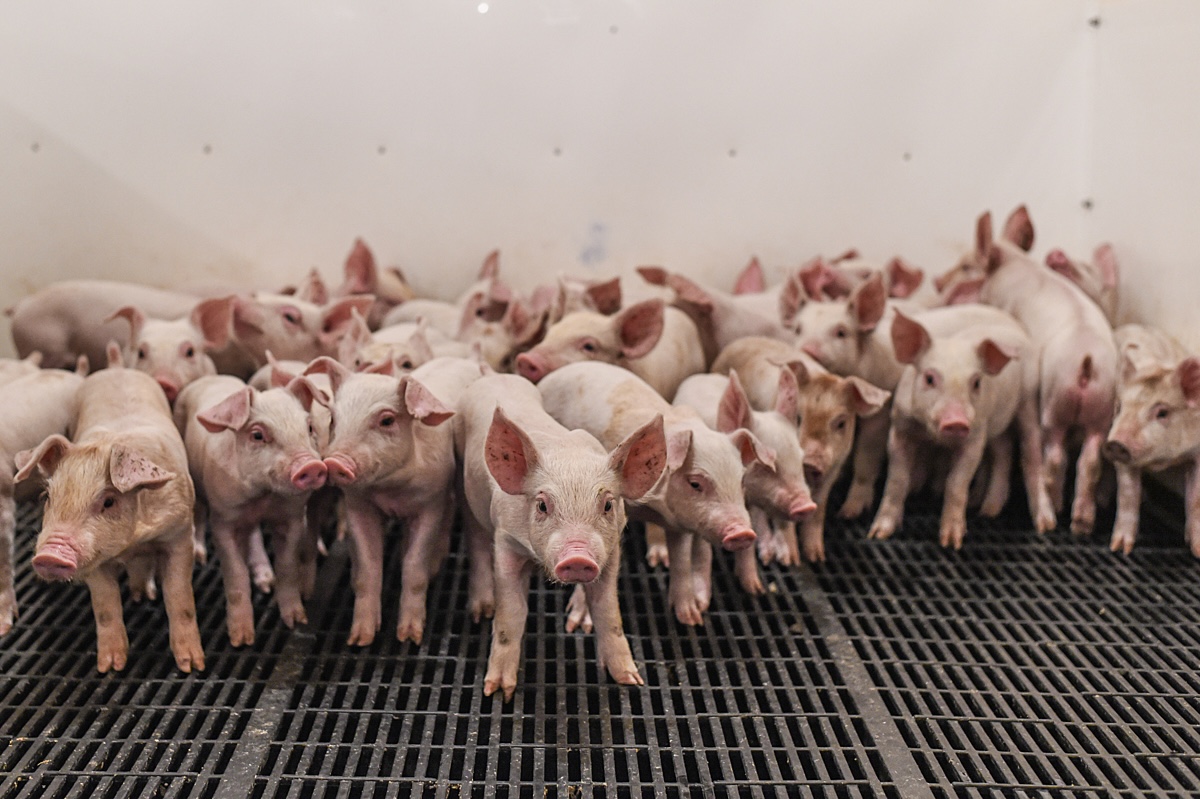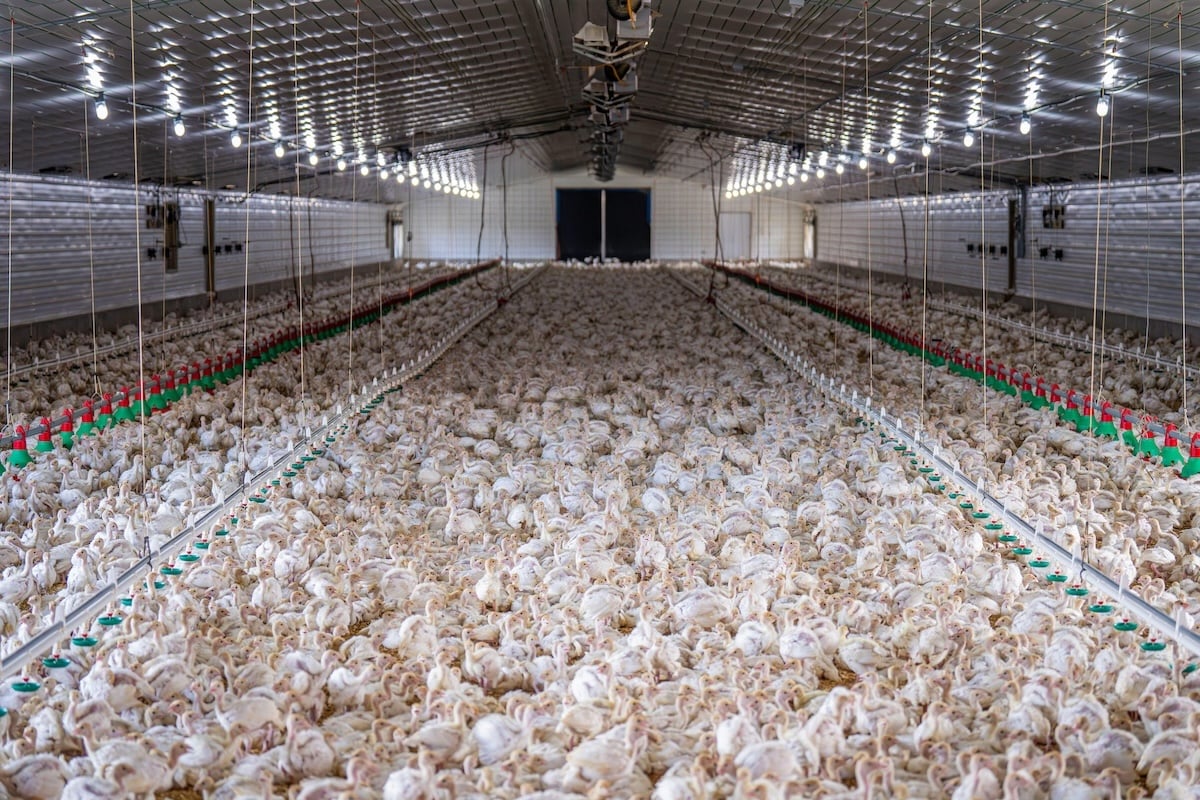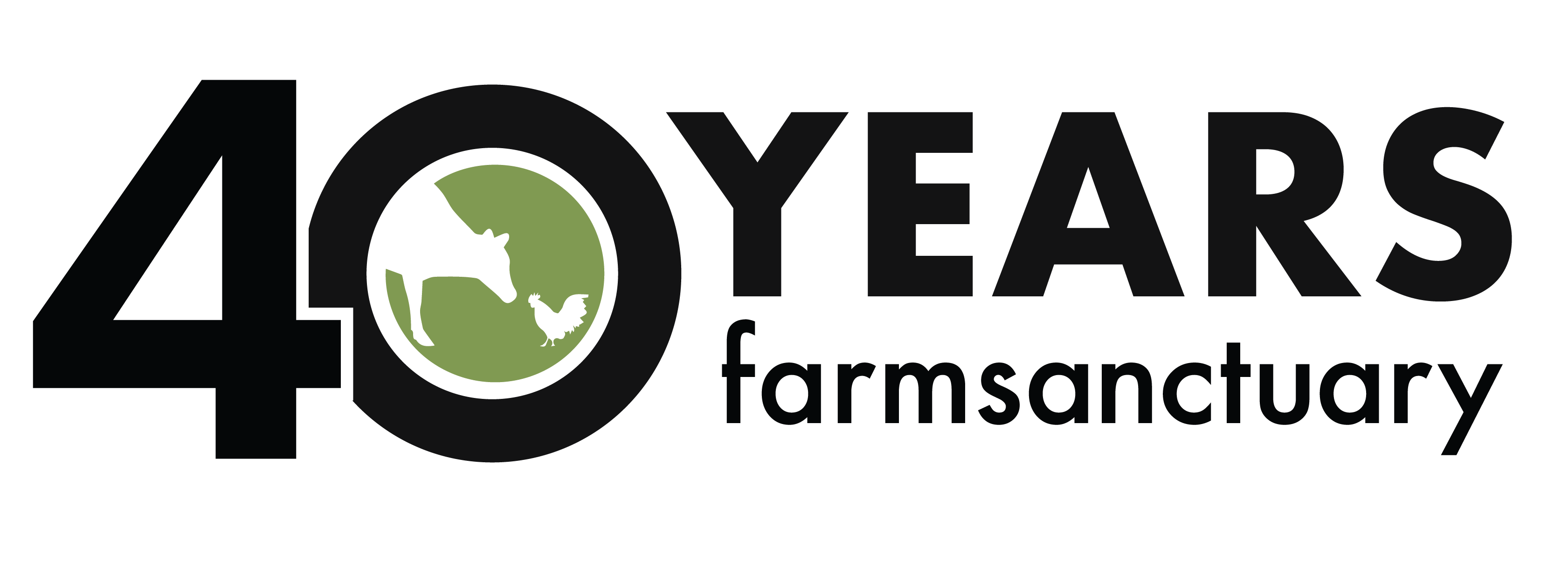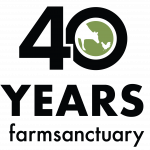Switzerland’s sweeping new legislation, effective July 1, 2025, applies to food sold in grocery stores, restaurants, and retail businesses. According to the Swiss government, it aims to create more “transparency for consumers, enabling them to make informed purchases.”
Swiss Consumers Now Know If Animals Were in Agony for Their Food. Americans Should, Too.

Jo-Anne McArthur/We Animals
Swiss Consumers Now Know If Animals Were in Agony for Their Food. Americans Should, Too.
Jo-Anne McArthur/We Animals
In a world first, food labels in Switzerland now must notify consumers if animals were subjected to painful practices without anesthesia or pain relief for the product being sold. This important step toward transparency is urgently needed in the United States, where nearly all animals raised for food are kept on cruel factory farms.
The brutal acts now disclosed on Swiss food labels happen regularly on U.S. factory farms and are even considered standard industry practices, including:
- Chickens and turkeys have parts of their beaks and toes cut or burned off
- Piglets are castrated, their teeth are clipped or ground, and part of their tails is cut off
- Cattle’s horns are burned off, or calves’ horn tissue is burned to keep them from growing
- Ducks and geese are force-fed through tubes put down their throats for foie gras
This means that billions of U.S. farm animals are forced to endure this pain each year, even though the majority of American consumers care deeply about the treatment of animals in our food system.

U.S. Consumers Care About Farm Animals—and Deserve More Transparency
Concern for animal welfare plays a significant role in the purchasing decisions of around 70 percent of U.S. consumers, and more than half are willing to pay more for what they believe is the product of better farm animal treatment.
The problem is that the requirements for “humane” labeling are poorly defined and loosely regulated, so what these labels really mean can be unclear.
Ironically, animal agribusiness interests claim that terms like “milk” on plant-based food labeling confuse consumers (despite evidence to the contrary). Yet, research shows that many shoppers are puzzled by welfare claims on animal-based foods.
A 2022 survey conducted by Farm Forward gathered responses to three major animal welfare labels and found “widespread confusion” among American shoppers as to what these certifications translate to in the lives of farm animals. The survey revealed that many consumers believe animals used for products bearing these labels are raised on pastures, have constant outdoor access, or are not subjected to painful mutilations, when none of these three certifications guarantee any of these conditions.
“These findings suggest that welfare labels are poorly understood by at least a sizable portion of the public,” concluded Faunalytics in an analysis of the survey. “Moreover, it’s troubling to see that consumers may be making purchasing choices based on these misunderstandings.”
Take Action
Farm Sanctuary advocates for meaningful policy change and a more just and sustainable food system. Addressing the unthinkable suffering animals face on factory farms requires systemic change, but you have the power to oppose cruelty with your everyday choices, too.
Choosing plant-based foods is the most effective way for consumers to help protect farm animals and fight the abuses of animal agriculture!






